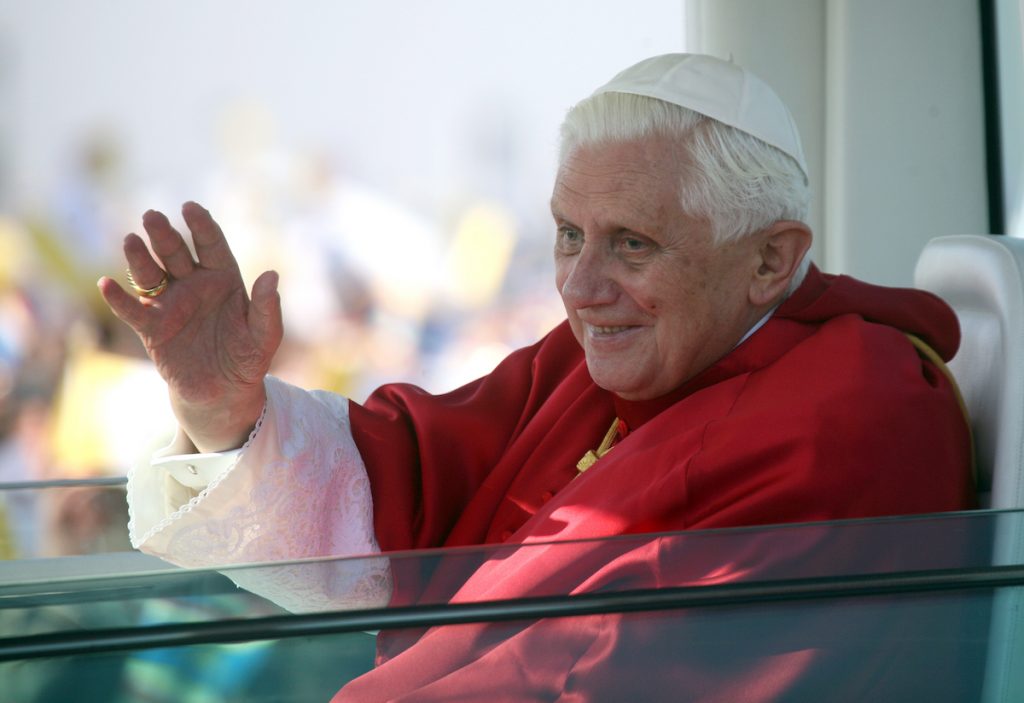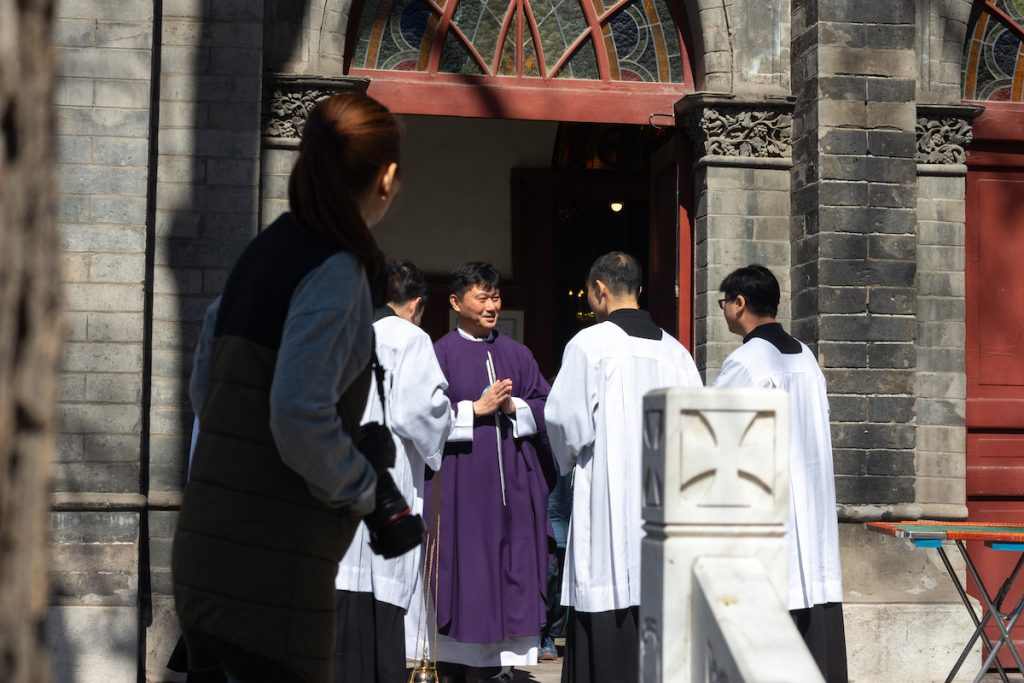Cardinal Joseph Zen has countered remarks by the dean of the College of Cardinals that Pope Benedict XVI gave his blessing to a draft version of the controversial China-Vatican accord. The former bishop of Hong Kong has called for archival evidence to back up those claims.
Cardinal Zen was responding to a letter sent by Cardinal Giovanni Battista Re on Feb. 26, claiming Pope Benedict XVI and Pope St. John Paul II had backed the Vatican-Beijing deal that was signed in September 2018 regarding the ordination of bishops in China.
“If you want to prove to me that the recently signed agreement was already approved by Benedict XVI, you just have to show me the text of the agreement, which I [have been] barred from seeing till now, and the archival evidence which you say you could verify. Then there remains to be explained why it was not signed at that time,” Cardinal Zen wrote in an open letter to Cardinal Re on March 1.
Cardinal Zen further cited Last Conversations of Pope Benedict XVI “to clarify the position of John Paul II and Benedict XVI regarding communism.”
Pope Benedict XVI, in his conversations with Pope St. John Paul II, said that the policy of Ostpolitik, which halted criticism of communist regimes during the Cold War and saw innumerable negotiations between the Vatican and Eastern bloc governments, had been a strategic “failure.”
“The new line pursued by John Paul II was fruit of his own personal experience, living under that regime,” Cardinal Zen cited Pope Benedict XVI as saying.
“Obviously, nobody could expect the communism (in Europe) to collapse so soon. But anyway, instead of being conciliatory and accepting compromises, it was necessary to resist it forcefully.
“This was the fundamental vision of John Paul II which I shared.”


‘Manipulating’ the pope
Cardinal Zen also accused Cardinal Pietro Parolin, the Vatican’s secretary of state, of “manipulating the Holy Father.”
Cardinal Zen has long criticized Cardinal Parolin for what he believes are misguided efforts at rapprochement with Beijing. Cardinal Parolin is the main architect of the Vatican-Beijing deal.
In February, Cardinal Zen warned that the underground Church in China, which has sworn its allegiance to the Holy See, is “doomed to disappear.”
That disappearance, he argues, is being facilitated by the Beijing-Vatican accord, which was intended to help build ties between the Vatican and China’s officially-sanctioned Chinese Catholic Patriotic Association, which is not recognized by the Holy See.
His assessment is partially based on his belief that older bishops loyal to the Vatican are dying off and no new bishops are being appointed, resulting in no new priests being ordained. That has made the issue of Beijing’s alleged role in the ordination of bishops a particularly strong sticking point for critics of the deal.
“The situation is, humanly speaking, hopeless, for the (Chinese) Catholic Church,” Cardinal Zen told the Catholic News Agency.
“They want complete surrender. That’s communism.”
A ‘bizzare’ time for normalization
As persecution against Christians has reportedly ramped up since that agreement, critics have called on Pope Francis to repudiate it.


One such critic is the last governor of Hong Kong, Christopher Patten, who said the Vatican has “got it badly wrong about China.”
Patten said it was “quite bizarre” that the Vatican opted to pursue a policy of normalization with Beijing under the regressive leadership of President Xi Jinping.
“Of course I am in favor of them trying to do what they can to make it easier for Catholics and Christians to worship in China,” Patten told The Tablet.
“I just think this was an extraordinary time to be doing this with an administration in China which has gone back on human rights — which is making things tougher on human rights. That is what Xi Jingping has been doing.”
Patten — who is Catholic — further noted the wholesale persecution of Uyghur Muslims and other religious minorities in the country to show how Beijing could not negotiate in good faith.
“How can you have a rapprochement on religious issues with China when there are a million or more Uyghur Muslims locked up in Xinjiang,” Patten remarked.
“I find myself sympathizing hugely with Cardinal Zen on this and with others. I admire those in Rome who have been trying for decades to improve relations between the Vatican and China,” he said.
“I know these issues aren’t easy. But I just think this was an extraordinary time to be doing this with an administration in China which has gone back on human rights.”


